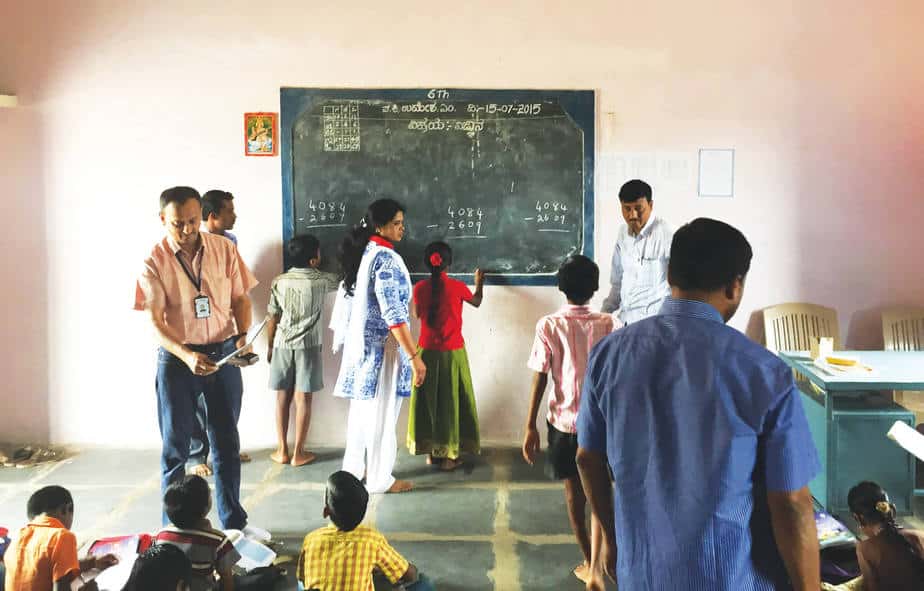CBSE has proposed with two levels for Mathematics exam to facilitate students who do not wish to study the subject after school. We look at the need to study Math for the ones not good at it and its relevancy in day to day life of young adults
CBSE has proposed with two levels for Mathematics exam to facilitate students who do not wish to study the subject after school. Speak to a class 10 student. He will give you the most convincing exposition on why CBSE’s new proposal to introduce easy and difficult levels of maths exams for class 9, 10, 11 and 12 is not the best idea.
The social stigma of not doing well in maths has affected many students. No wonder, they can point out everything that is wrong with our education system and our takeaway from it.
“No one wants to take an easy exam because of being considered not good in it,” says Neha (name changed) as she starts with her daily mathematical scribbling in the name of ‘practice’. CBSE is already known to set an escapably easy level for its exam. According to her, a move like this will only create more chaos as students will never study enough if they take up the easier option — and those who opt for the difficult one will face additional stress. “And what about the average students, what should they choose?” she asks.
The new provision is meant to ease the burden of students who don’t intend to study maths after school and can avoid appearing for the tougher edition of the paper. The idea that is received by CBSE from various schools and principals across the country is under discussion by its subject expert committee. The proposal not only entails two different papers, but entirely different curriculums to support the two difficulty levels. It is said that the easier paper is a good option for students who want to take subjects like economics, medicine and architecture that require only basic concepts of maths. This, in turn, will help them in improving their overall performance.
No matter how ‘impractical’ math may seem to a teenager, in comparison to other subjects that talk about relatable things that they can ‘see’ and fit in their innocent understanding of life, the subject continues to be of assistance to many of us, after graduating from school and college, in our day-to-day life. A number of young adults are in favour of the progression recalling their own, or their peers’ turmoil associated with studying the subject back in school.
Patriot spoke to a number of adults who have finished their tenure at school and college. They use their experience of studying math and its application later in life while reviewing the proposal for us that CBSE is working on.
Radhika, IT engineer
I think students already study basic math till 10th which is enough for them to solve day-to-day problems later in life. A move like this is just an easy way to give students a chance to score marks. However, easier maths can definitely be treated as an extra subject.
Saurav, software engineer
Students who opt for non-academic professional courses can do with the easy paper. But that again depends on the chapters they are going to include in the easy maths.
Ashutosh, visual designer
This is cool, should happen. Not everybody excels at everything. I think it should happen to all subjects.
Megha, textile designer
Since childhood, we have been fed the idea that maths and science are more important. I feel it depends on the students, they may find certain subjects difficult like I found Sanskrit difficult, not maths. I really don’t feel a paper can decide if somebody is good at something or not. And easy or difficult is relative.
Sanjali, fashion designer
Many things we studied so hard in maths are actually not used in life by us at all. So what’s the point?
Shubhangi, graphic designer
There is a kind of education system which believes in training the students in only one specialisation from the beginning. They believe in perfection. While another system believes in knowing everything. The CBSE approach is in the middle.
Jatin, fashion tech graduate
This is wrong. But they should teach skills we can use. Like doing taxes, salary deductions. They should simplify with real-life applications. More interactive, in short! Also, you cannot bifurcate easy and difficult.
Shailendra, Founder of Fasal, a convenience app for Indian farmers
It is the stigma around it that makes students not do too well in maths. Also, the analytical power in that particular age, I don’t think we are potentially ready enough. However, this concept by CBSE is very interesting. But how will they define what is easy and what is difficult? The proposal is fascinating. Knowledge of fundamental math is critical. The ‘easy’ and ‘difficult’ exams will serve the purpose for students keen on maths vs the ones who are not keen on it.
A survey conducted on 51 students of class 9 in Kerala to elicit data on their values, beliefs, goals, interest and anxiety related to maths, shows that 88% of students hated the subject whereas only 6% of them liked it.
So what is so outlandish about maths, that most of us fail to grasp it? Many reports say that the subject doesn’t work too well with appropriation. There is no scope for mistakes. One slip and the student is over and out! There’s some grey area when it comes to most things in life. But maths got its OCD in place.
Many times, it is people’s reinforced view that math is difficult. Also, one’s missing out on basics before getting on with advanced ideas. Bad coaching can be one aspect. An important factor is the amount of practice one does. A mathematics textbook can’t, in any case, be handled like a novel. Maths is a dense subject: A 20-page maths textbook will need more time and practice than a 200-page psychology textbook.
The subject is unique, a fundamental part of a school’s curriculum. Considered an instrument for the development of all other sciences, we all are using maths all the time, even after our education is over. Maths is not inherently more difficult than, say, analysing socio-economic structures. How we tackle with it says a lot about our relationship with the subject. Yes, it takes a lot of perseverance, discipline and hard work to crack the subject, but it is all worth it.





